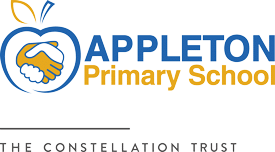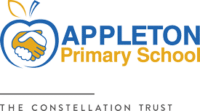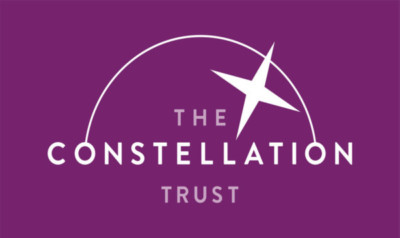Computing – curriculum overview
Intent
At Appleton Primary School, we strive to deliver a high-quality computing curriculum which allows our pupils to recognise the significance of digital technology in their everyday lives. We explicitly teach pupils the skills and knowledge they need to become creative, digitally literate, computational thinkers.
Teaching and learning are at the heart of everything we do. The computing curriculum has been developed to ensure it has breadth and depth and is progressive so that it allows our pupils to build their knowledge, whatever their starting point and to enable them to develop to their full potential. Our curriculum is led by key concepts, terms and vocabulary providing opportunities to build a shared and consistent understanding. Units are organised into a spiral curriculum to ensure themes are revisited regularly as pupils move through the school. This ensures each unit builds effectively on prior learning and ensures connections are made between different units to help children know more and remember more. Our pupils are able to apply and consolidate understanding as they progress through the school to enable them to become computer scientists of the future and the possibilities ahead of them. We have high aspirations for all our pupils and believe that every single one of them can achieve this.
We encourage curiosity about digital technology and encourage our pupils to ask questions about the digital systems around them. We explore how technology is used in the real world and how to use it in a safe and responsible way. We ensure all children are exposed to high quality computing teaching and a range of learning experiences.
The substantive knowledge builds progressively to develop children’s understanding of the following key concepts:
- Computing systems and networks: (systems, networks and how they are used, the internet, hardware and software)
- Programming: (interpreting, creating and evaluating algorithms, programming to accomplish specific goals, detecting and correcting errors)
- Data and information: (collecting, analysing, evaluating, presenting data and information)
- Creating media: (design and development, communicating and collaborating online, evaluating online content, respectful and responsible communication, presenting, creating content)
As part of the work on each key concept, children also explore and learn about:
- The effective use of tools
- The impact of technology
- Safety and security
We deliver a broad and balanced computing curriculum which stimulates and maintains children’s digital curiosity. Key concepts are enhanced through real-world contextual examples on to give the children a real-life understanding of the terms taught. Where possible, a focus on interdependencies with other curriculum subjects is used in lessons to give our children a deeper understanding of these concepts.
Implementation
At Appleton Primary School, we use the Teach Computing scheme as a basis for computing planning. The National Centre for Computing Education scheme has been developed by a team of leading computing experts and then refined by Computing Leaders across the Constellation Trust. The programme ensures the full coverage of the National Curriculum following the identified programmes of study.
Our curriculum is centred upon the core of computer science and how information technology and digital literacy are built on this knowledge and understanding; this requires deep thinking, exploration, discussion, investigating and researching. The clear progression ensures that children are continually building on their prior learning as they systematically develop their understanding of key ideas and their computing skills. Our pupils draw conclusions and use computational vocabulary to discuss and present their findings in a range of different ways.
The knowledge the children need to acquire has been organised around a set of key concepts which are revisited as pupils progress through the school. (See progression document)
All learning outcomes can be described through the following ten strands:
- Algorithms
- Computer Networks
- Computer Systems
- Creating Media
- Data and Information
- Design and development
- Effective Use of Tools
- Impact of Technology
- Programming
- Safety and Security
Impact
Learning can be designed as an alteration in long-term memory. The successful, collaborative approach to the teaching of computing across the Constellation Trust results in an engaging, high quality education that allows pupils to understand the world around them and encourages them to explore digital technology further as they leave primary school. Teachers use assessment to ensure our pupils have gained the intended knowledge and skills, can use these effectively and know more, remember more and are able to do more. They do this through the use of the Teaching Computing summative assessments and the use of ‘three key questions’.
By the end of the primary school education, pupils will:
- Understand how to use algorithms to solve problems
- Be able to use a computer programme to write code to perform a task
- Be able to use mathematical and logical concepts to solve problems
- Understand different networks and how they communicate
- Understand how to work safely and responsibly online, how to recognise and report security issues and concerns
- Be able to explain the different hardware in computers and how they work together
- Be able to evaluate real world issues by using personal experiences and real life examples.
Our pupils develop the knowledge, skills and cultural capital needed to ensure they successfully progress onto the next stage in their education and life and develop into responsible, respectful and resilient citizens.
Curriculum progression information:

“Big shout out to the teachers – doing a great job.”

“Resources have been really helpful and provided challenge.”

“You do an amazing job with our children.”

“Thank you from myself and my boys – we just wanted to show our appreciation.”

“Had a lovely morning visiting the school. It’s always a pleasure to meet with teachers who value the importance of the Arts in education.”

“It looks like the children are really enjoying themselves.”

“Very enthusiastic pupils with lots of energy and impeccable behaviour.”

“Fantastic school, students were brilliant. Thanks for having us.”

“Thank you to all teachers. Good teaching changes lives.”

“My son is sad to be leaving Appleton. He has loved his time at the school.”

“Thank you for your support at this time – it has really meant a lot.”

“Thank you for your efforts, it makes a huge difference to the kids!”

“Thanks as always for putting the school work onto the website for my children.”

“Thank you to everyone involved in producing that work as it is a perfect indicator of what levels and subjects to go with.”

“The children were an absolute delight, full of smiles and energy. Thank you for a lovely afternoon.”




